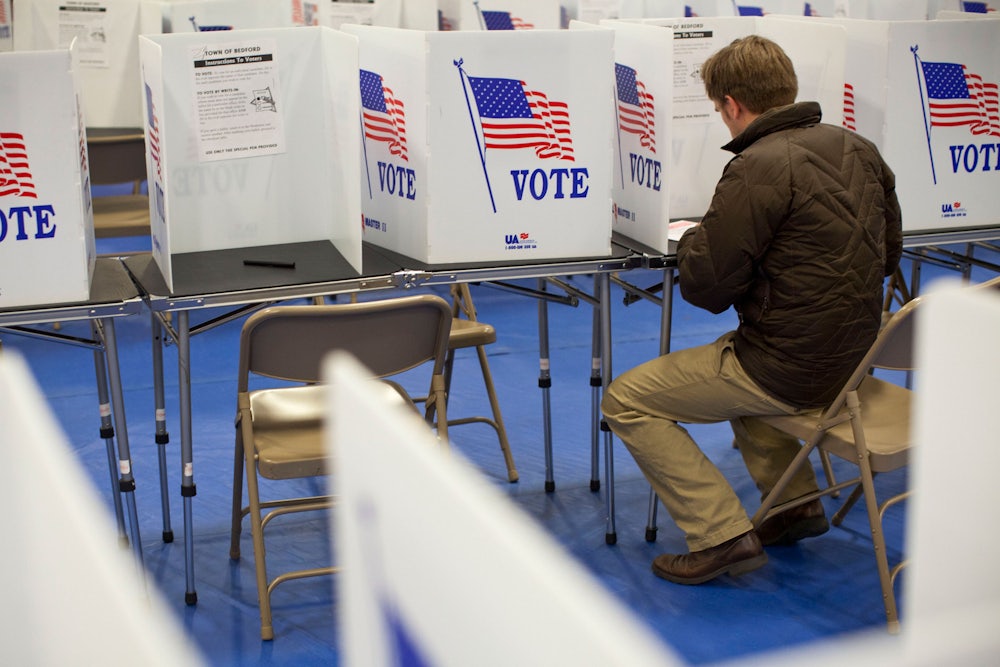Is the New Hampshire primary over the hill?
After 20 years of observing and analyzing the contest as a professor at Dartmouth College, I fear the answer might be “yes.”
The primary is turning 100 this year, but its relevance is in doubt as the national media threaten the state’s traditional function of vetting the candidates.
In this election cycle, for example, I’ve observed that polls—designed, funded and analyzed by the press—started earlier, involved more organizations and occurred more frequently compared to the previous five primaries I have analyzed. They have overshadowed every aspect of the 2016 campaign. Consequently, the face-to-face contact in town meetings and small groups for which the state is renowned has had far less effect on the candidates’ standing in the state than in the past.
A big spotlight
The state’s prominence in the presidential nominating process results from its first-in-the-nation primary status and its voters’ penchant for defying conventional wisdom.
For decades, reporters have descended on New Hampshire looking for the big story about unexpected upsets and emerging front-runners. Candidates have braved the Granite State winters because they want to become that big story.
The phenomenon of surprising verdicts began in the 1952 primary with Senator Estes Kefauver’s upset of President Harry Truman and General Dwight Eisenhower’s defeat of “Mr. Republican,” Senator Robert Taft, even though Ike didn’t campaign in New Hampshire. A more recent example was in 2000, when Senator John McCain’s Straight Talk Express overwhelmed Texas Governor George W. Bush. Until the Democratic primary in 1992, no candidate who lost New Hampshire ever had won the nomination.
In years with less political drama, the state enables candidates to build momentum after a caucus win in Iowa or to attract a second look from donors and activists. With journalists crowding the state, they have a good chance of making news with an apt quote or a crowd-pleasing message.
How retail politics used to work
The self-interested strategies of journalists and politicians thus create an information-rich environment for New Hampshire voters.
Candidate visits are newsworthy in the tiny state and are covered extensively in local newspapers and in its efficient television market dominated by Manchester-based WMUR. Citizens can meet candidates with relatively little effort or tap into firsthand accounts of events from friends or coworkers.
My research on the 1996 primary indicates that voters who met a candidate or attended a rally developed a more favorable opinion of that candidate and could identify more traits about him or her. So, retail politics can make a difference.
Interactions with individual voters have historically proven valuable to candidates, as well. New Hampshire’s small scale enables those who aspire to the presidency to run relatively low-cost campaigns in the state. Local officials are accessible for building networks, and citizens are accustomed to volunteering. It is a playing field highly favorable to underdogs. Moreover, candidates can practice their messages and fix mistakes before the intense glare of the national spotlight focuses on them, much as Broadway producers schedule plays for out-of-town performances before the opening on Broadway.
At least, that’s the way it is supposed to work.
Change in 2016
Retail politics is still happening in New Hampshire’s 2016 primary, but something is amiss with the Republican contest.
Donald Trump’s celebrity status made him the immediate front-runner in the polls last summer with voters who were not paying attention to the nominating contest. After Trump burst on the political scene, he immediately enjoyed support in statewide polls of roughly 25 percent.
Trump, as one might expect from a reality show host, proved masterful in exploiting the worst vices of the media for conflict, scandalous behavior and the pseudo-objectivity of opinion surveys. His startling statements consumed the public space not already devoted to reporting poll results. A week before the primary, he still led with an average of 32 percent as other candidates struggled for the notice of the press.
What happens in the Republican primary could have potentially severe consequences for New Hampshire’s tradition of personal contact between voters and candidates. Trump has made only a handful of visits to the state, all of them large-scale rallies. Neither Cruz nor Rubio has spent much time in New Hampshire, although they are here now trying to build momentum from Iowa.
Trump’s other opponents, particularly Governors Chris Christie, Jeb Bush and John Kasich, have worked diligently to meet citizens in diverse community settings, but they have not yet altered the dynamics of the race established last summer. Face-to-face campaigning is the only route these candidates can take to overcome the media’s obsession with The Donald and his polls. If the strategy does not work for one of them, however, retail politics in the Granite State may no longer be perceived as a viable path to the White House.
The New Hampshire primary is now one of the few places remaining in the United States to see democracy, with a small “d,” in action. In an electoral system dominated by professional consultants, negative ads and mega-donors, the state’s unique political culture has presented an alternative vision of politics in which ordinary people still matter.
The state—and the nation—can hang on to something precious, at least for a while longer, by resisting the media’s and their polls’ distorted coverage of this election.
![]()
This article was originally published on The Conversation. Read the original article.
